Working in customer service or a call center is no walk in the park. Especially when you’re on the receiving end of customer complaints. If you’re lucky, you’ll deal with a calm and polite caller. And you’ll be able to assist, say goodbye, and move on. But that’s not always the case. A recent survey revealed that 60% of customers have hung up on a customer service/support agent. And 34% of customers admit to yelling at a customer service agent.
One person shared how they had to grin and bear it while an angry, entitled Karen went off on them for forty minutes straight. But there was an unexpected plot twist after the call—the rude caller turned out to be a colleague attempting to carry out a serious data breach. And they weren’t quite prepared for the repercussions of their rant.
Dealing with an entitled customer is bad enough, but when they decide to call a minute before your shift ends—that’s next level

Image credits: delightfully_chaotic_me/Envato (not the actual photo)
One customer service agent bit their tongue while an angry woman yelled at them, making impossible demands left, right, and center


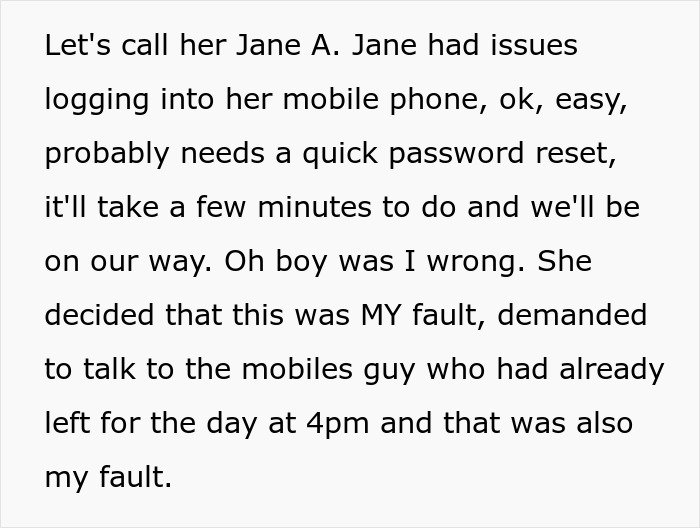
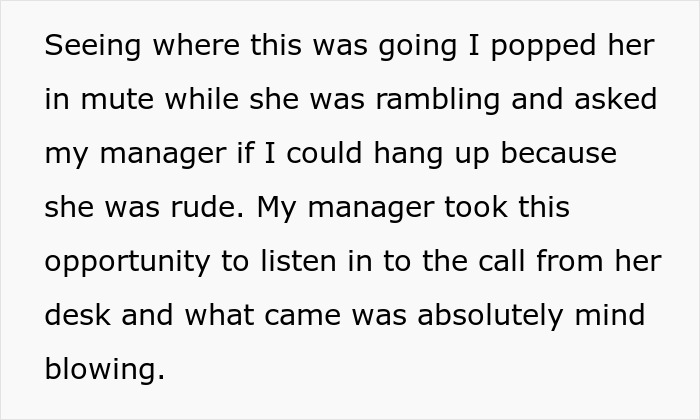

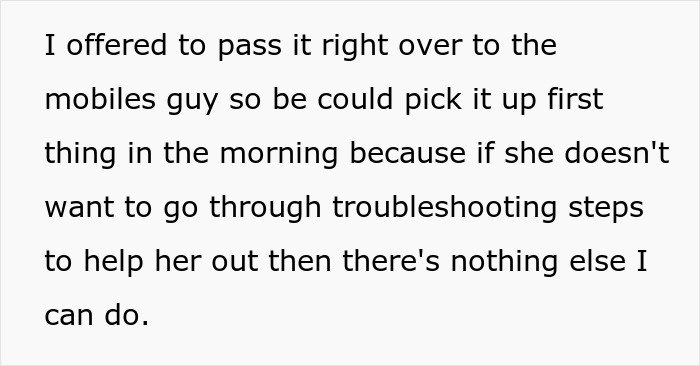
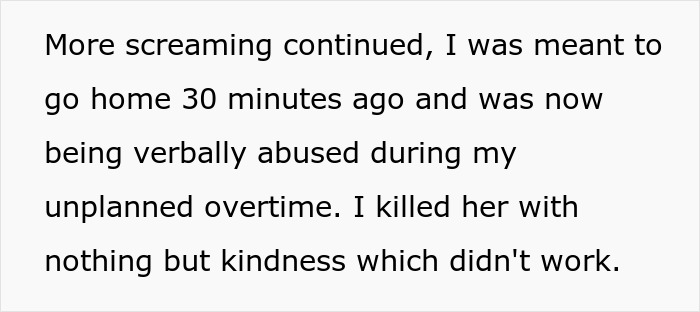

Image credits: stockbusters/Envato (not the actual photo)

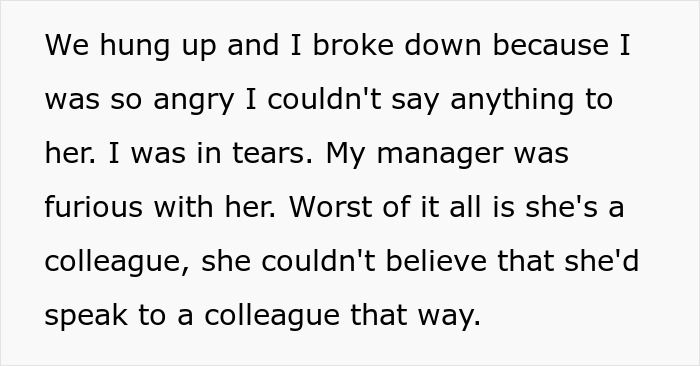


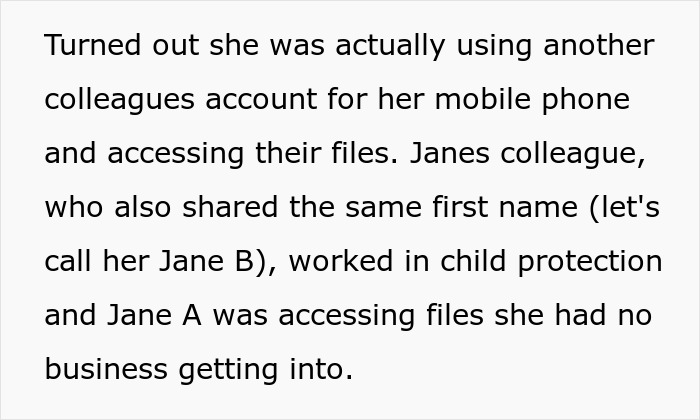

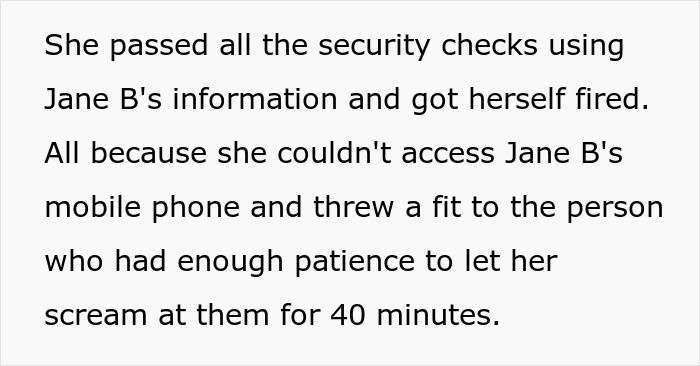
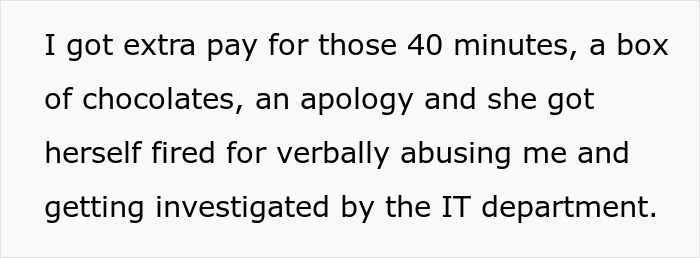
Image credits: Atvali
“There are several ways to handle an angry customer”: an expert explains

Image credits: Getty Images/ Unsplash (not the actual photo)
Shep Hyken is an expert when it comes to customer service. He’s a keynote speaker on the topic and an author. Hyken says it’s important to remember “you’re not trying to win an argument. You’re trying to win the customer.” While it’s easy to lose your cool or zone out while being screamed at, Hyken advises you to pay close attention to what the person is saying.
He also suggests dealing with the customer’s anger quickly. “Acknowledge it early in your conversation. Apologize for it and begin to work on the solution, which should de-escalate the anger,” he wrote. He also advises that you stay calm. Do not shout back. “It’s human nature to become defensive and fight back. As mentioned, you’re not trying to win the argument. Even if customers yell, don’t yell back. They aren’t mad at you. They are mad at the situation.”
Hyken adds that you should listen and ask clarifying questions but never interrupt. It’s also useful to take notes “because if the customer is sharing a long story, it may be a while before you get a chance to jump in with a question.”
As tough as it can be, the expert says you should always try to have a positive attitude. “That doesn’t mean you’re all smiles. It means you’re appropriately enthusiastic,” he explained. “It’s a contagious attitude that is felt by customers and helps them understand you’re there to help them. And, the right attitude promotes optimism.” Hyken says the aim is to make the customer feel like they have your support, and that you’re able to help solve their problem.
21% of customers admit to cursing at customer service agents

Image credits: Blake Cheek/Unsplash (not the actual photo)
Hyken’s latest research found that 34% of customers admitted to yelling at a service agent, while 21% have taken it to the next level and cursed. “You catch more flies with honey than you do with vinegar,” is Hyken’s message to angry customers. If you’re the one calling customer care, he suggests you be friendly but stern. Always note the agent’s name. “Be direct about the problem, but don’t lose your temper. If you feel you’re getting angry, stop and pause,” said Hyken.
He adds that you can always ask to speak to a supervisor. Or, you can hang up and hope that a different agent answers your call. “I’m amazed at how often I call a company and talk to two or more people, getting a different answer each time,” he said.
While Hyken is all for solving an angry customer‘s problems, he believes that customer service agents should not tolerate abusive behavior. “This is more than an argumentative customer – it is taking rude and argumentative to another level. The customer curses, insults or threatens the employee,” wrote Hyken.
“While we always want to be polite to our customers, sometimes it’s okay to politely transfer them to a manager or, if empowered to do so, politely say goodbye and hang up.” Or, in the case of the person dealing with their criminal colleague, let your manager listen in while the customer incriminates themselves even more.
“Don’t commit a second crime while you are committing a first one”: Netizens took to the comments to share their thoughts

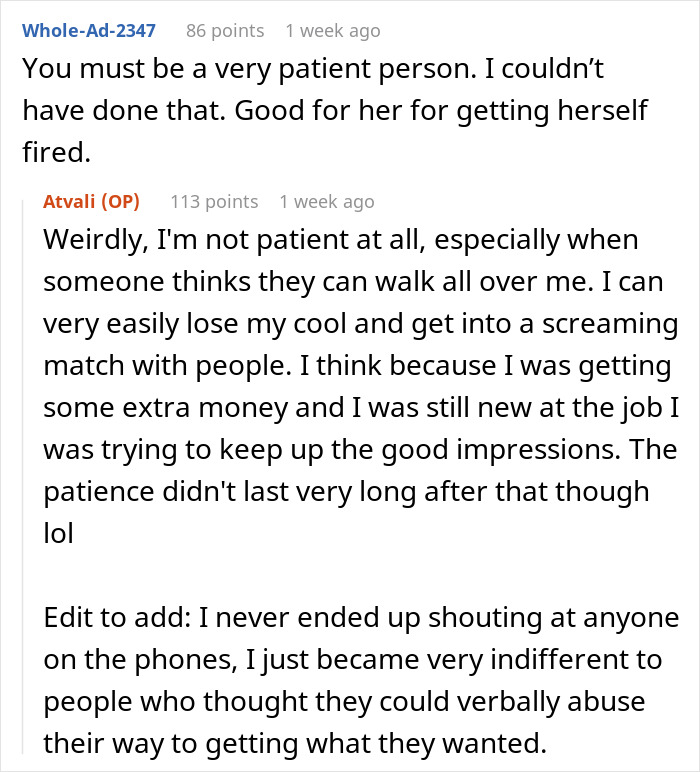

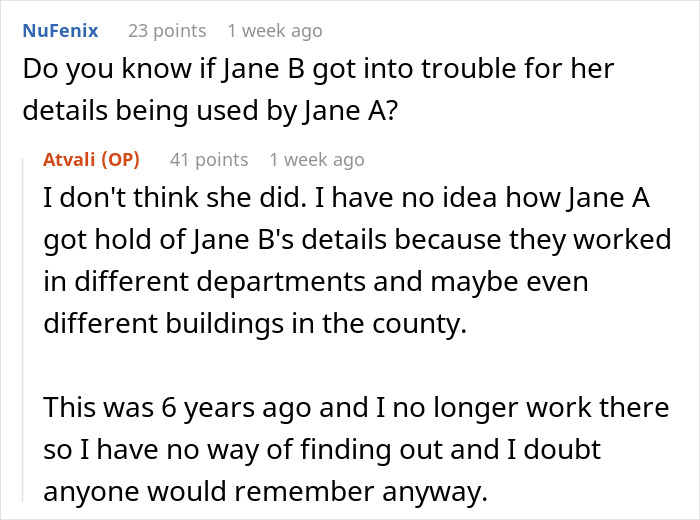

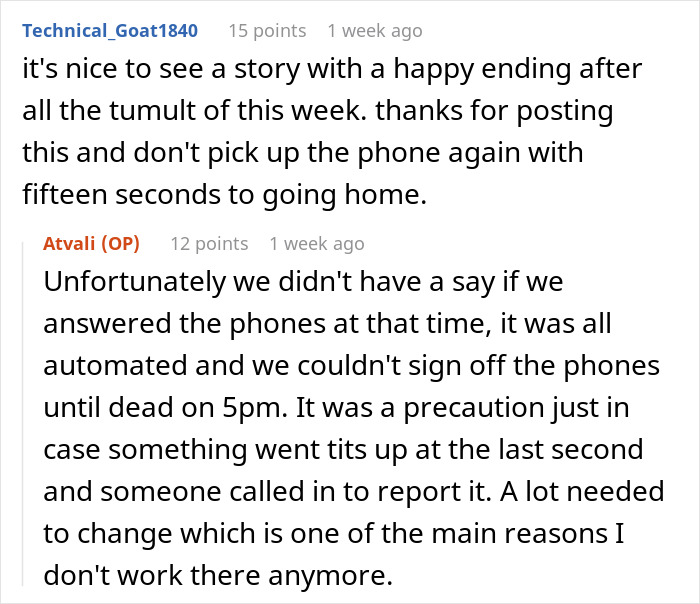
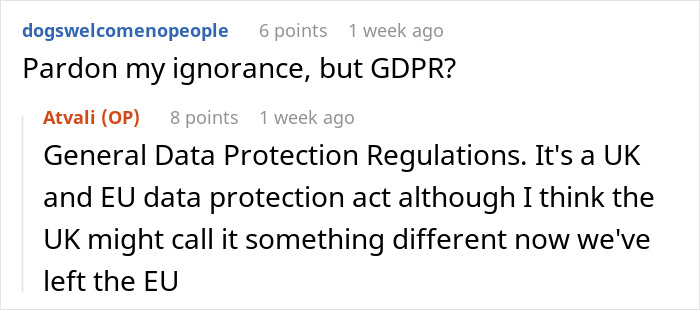
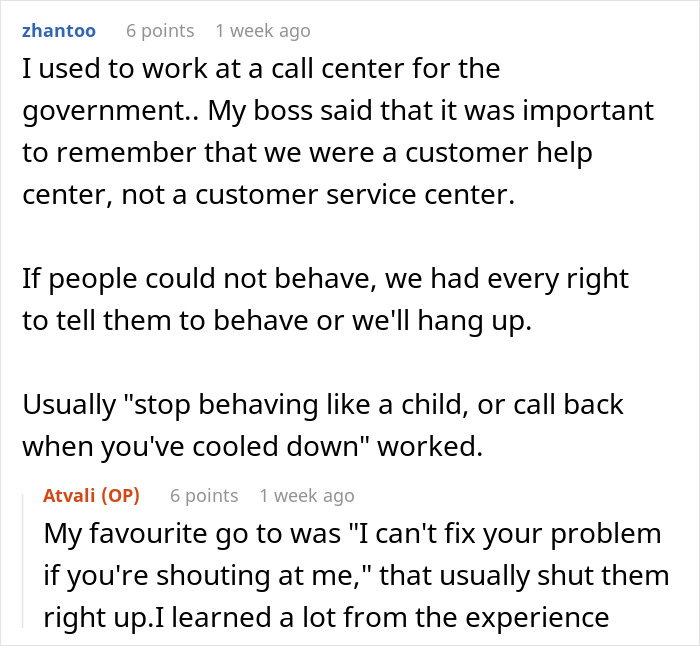
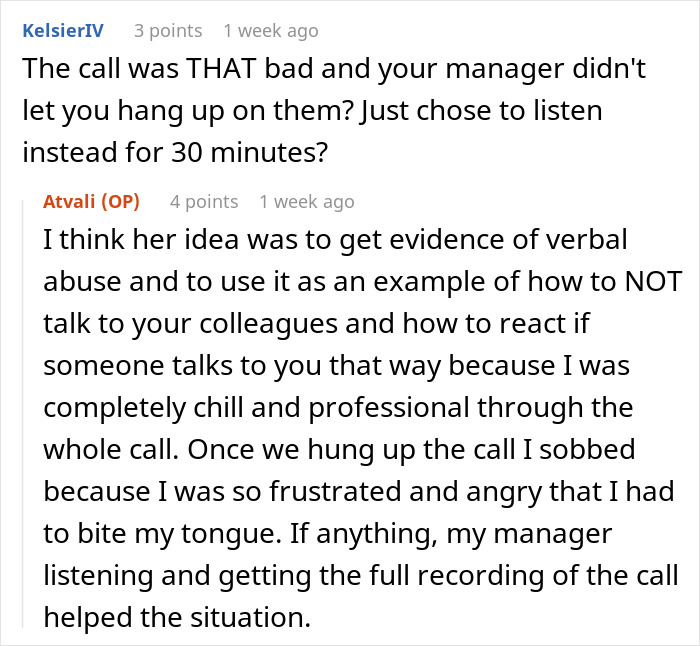
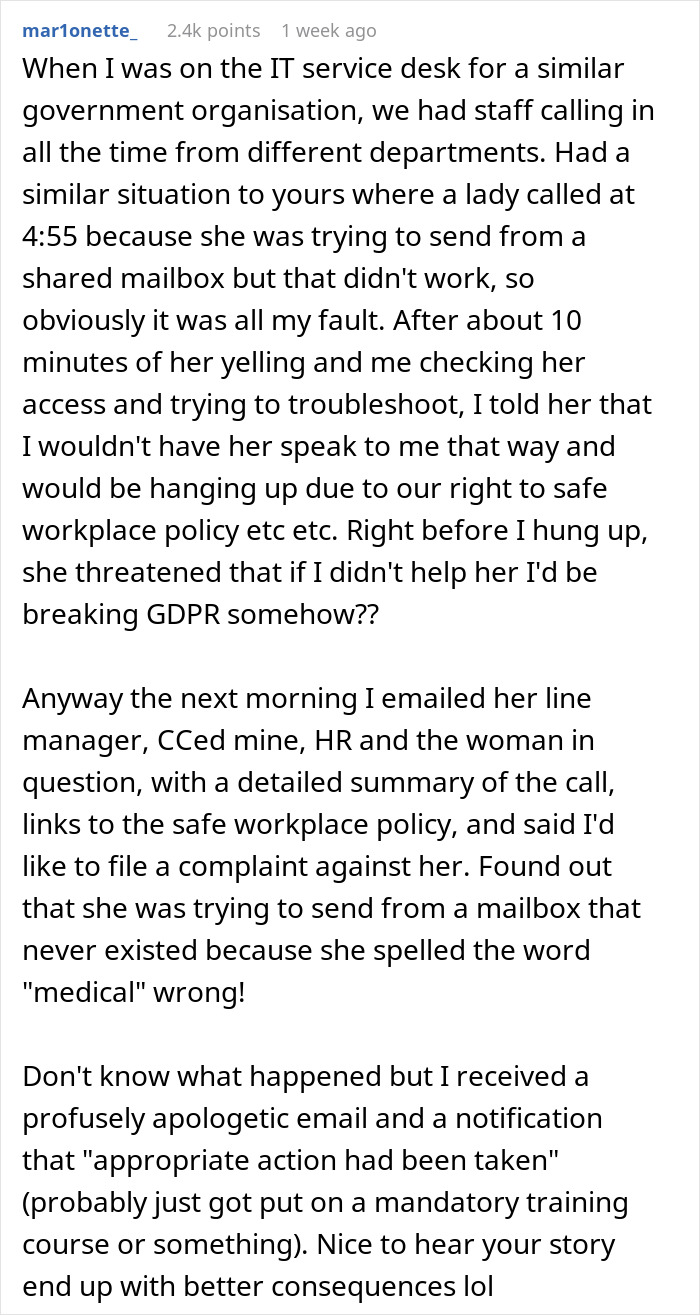


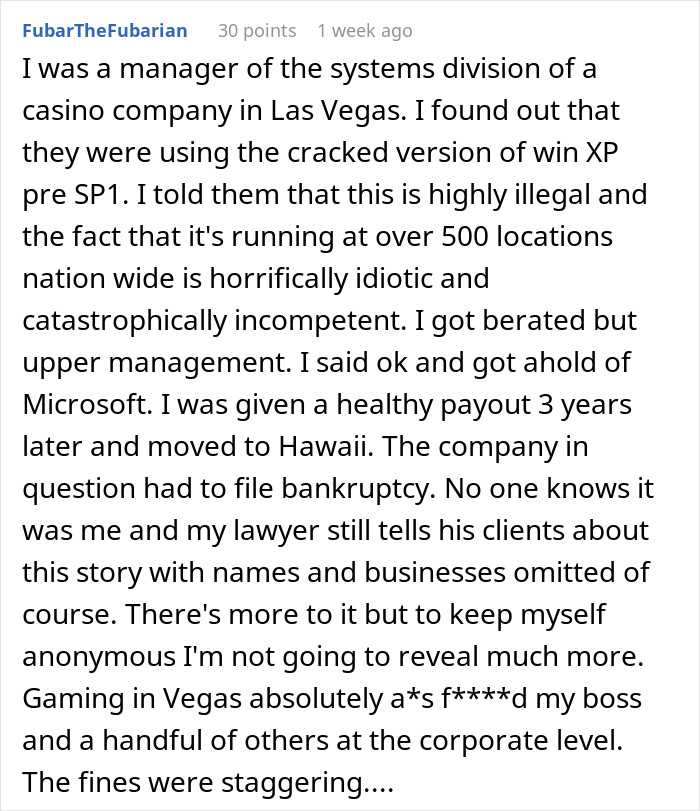

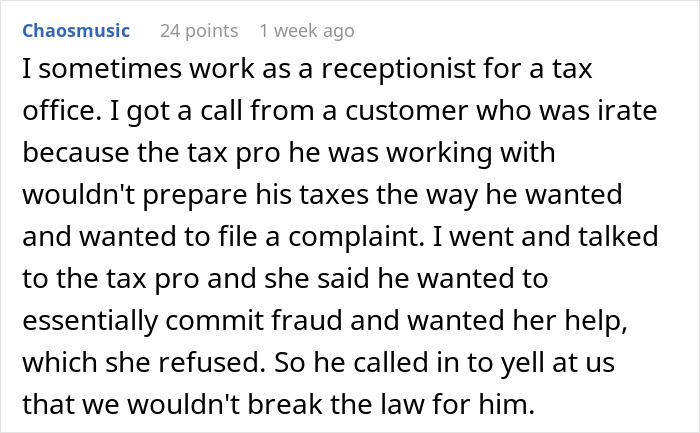
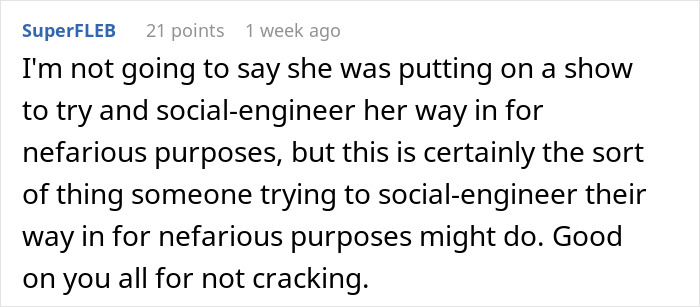
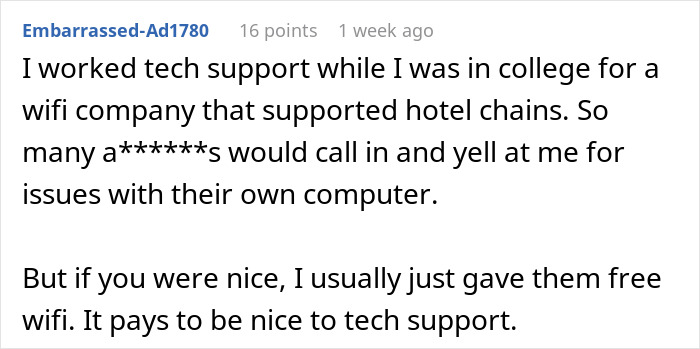
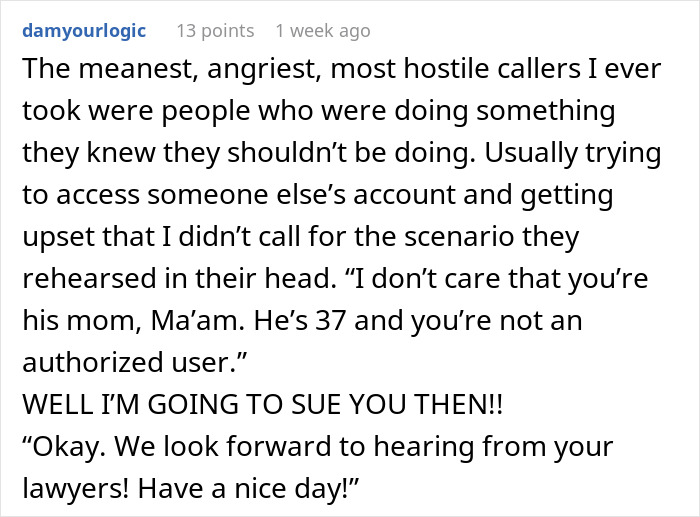




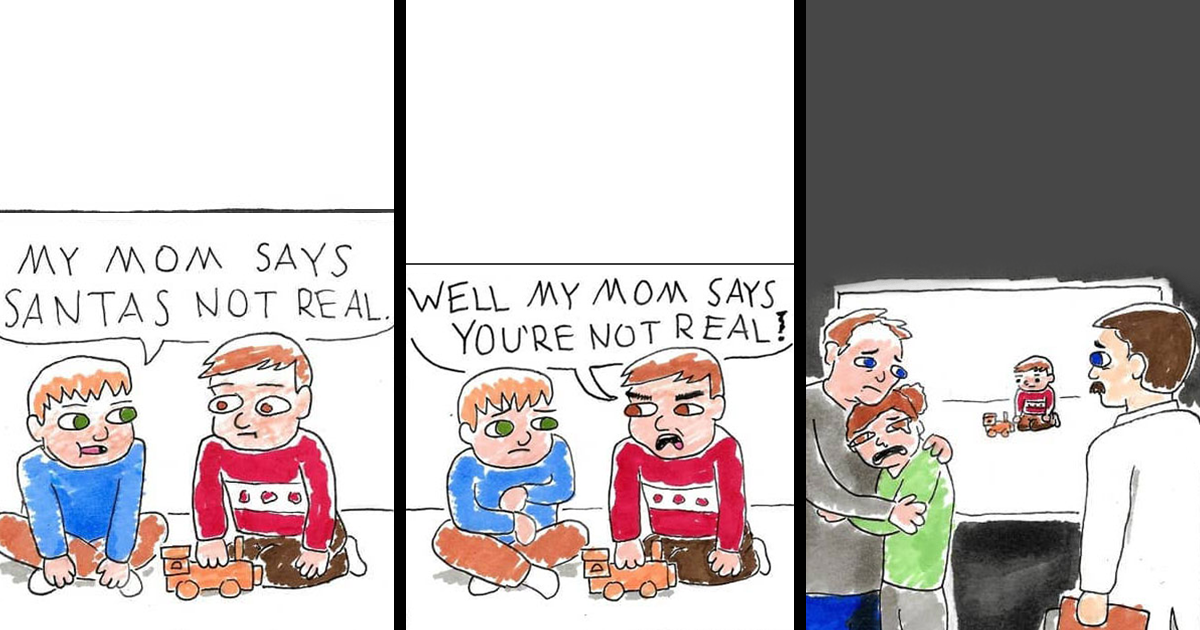







 English (US) ·
English (US) ·